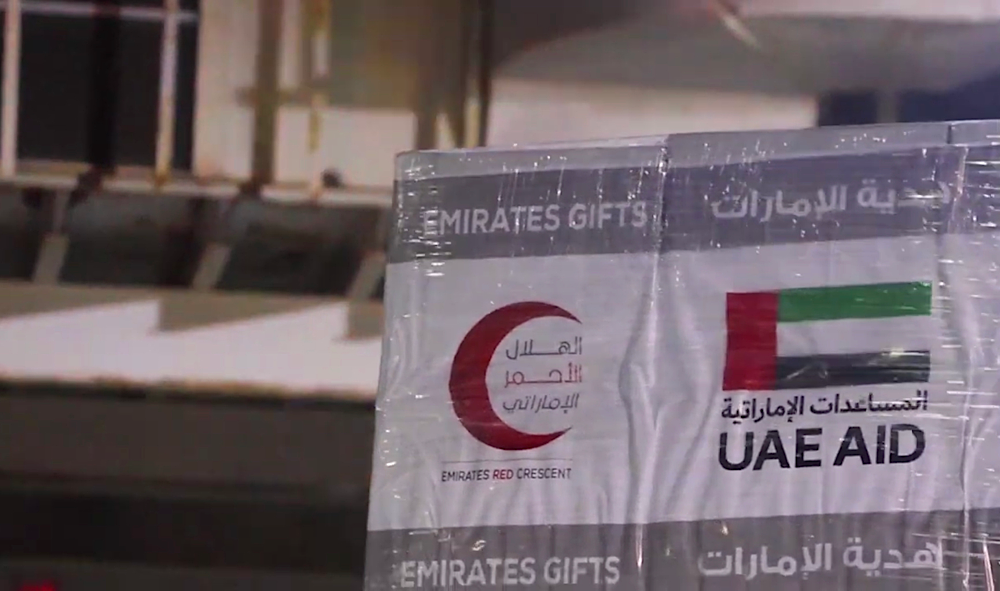From Morocco to Libya, UAE aid diplomacy on the go
The two North African countries were hit recently by a quake and floods and are now struggling to deliver aid to devastated communities. But politics and diplomacy appear to be shaping the response to their emergencies. One of the few players to benefit is the UAE, whose investments and outreach in Africa has earned it some kudos.
Abu Dhabi (AsiaNews) – As time goes by, the extent of the devastation is becoming ever clearer in Morocco and Libya.
Some 3,000 people died in the earthquake that struck Morocco last Saturday, with thousands more injured and left homeless. The most affected region is the High Atlas Mountains, which are hard to reach; their traditional mud brick and stone houses were easily razed to the ground, making matters worse.
To the east, in Libya, more than 5,300 died and almost 10,000 are missing as a result of Storm Daniel, which triggered heavy floods and caused the collapse of two dams.
In both countries, survivors have been waiting for aid, often burying their dead without help from the government or international agencies.
In some cases, delays can be explained by the lack of infrastructure like proper roads and the damage to the few that survived, but the biggest obstacle is political.
In Morocco, the authorities have only welcomed the offer of assistance from Spain, Great Britain, Qatar, and the United Arab Emirates.
The Interior Ministry justified this by saying that "the lack of coordination would lead to counterproductive results.”
Although the 6.8 earthquake demolished thousands of buildings, the Moroccan government has refused help from more countries, first and foremost France, as well as Algeria, which has offered to open its airspace despite being at loggerheads with its western neighbour.
The situation in Libya is different. Torn by internal strife for more than a decade, and split with two rival governments (one in control of the capital Tripoli, and one in Benghazi, in control of the east), each vying for regional (Mideast and North Africa) and international support amid opposing alliances.
Derna, a coastal city in the eastern part of the country, took the brunt with cars, houses, and entire neighbourhoods swept away by the rushing waters.
Officials with the eastern-based administration have called for help and their leader, General Khalifa Haftar, has urged Libya’s central bank to provide help. The latter announced its reunification only last month but implementing it is an uphill endeavour in a country that is still deeply divided.
Since February 2022, Libya is effectively split into two, each ruled by separate political and military groups.
In Tripoli, the Government of National Unity under Prime Minister Abdulhamid Dabaiba is recognised by the international community and backed above all by Turkey. Conversely, the Government of National Stability is based in Cyrenaica, but the real power lies with General Haftar.
One of the very few countries to be welcomed by both Morocco and Libya is the United Arab Emirates (UAE), one of the first to send aid and rescue teams to Morocco following the quake.
Two cargo planes from the UAE Red Crescent loaded with food, medicine and other necessities also landed at Benina airport, in Libya.
UAE President Sheikh Mohamed bin Zayed Al Nahyan spoke by phone to both Prime Minister Dabaiba and General Haftar, offering his condolences and sympathies to the Libyan people and the two rival governments.
The UAE’s involvement in Libya dates back to 2011, at the start of the Arab Spring uprisings, and reflects its opposition to Islamist groups like the Muslim Brotherhood, crystallising in political and military support for Haftar and his Libyan Arab Armed Forces (LAAF).
This reached a peak in 2019-2020 when UAE drones, weapons and funding for Sudanese mercenaries were funnelled to the LAAF.
Since then, the general's failure to advance forced the UAE to adjust its policy, especially after the UN brokered a reshuffle in the internationally recognised government, followed by the UAE’s signing of the Abraham Accords with Israel.
With Libya’s current prime minister taking over in Tripoli and the decision by UAE leaders to follow a more pragmatic foreign policy, the focus was on economic stability and trade partnerships rather than military muscle.
A similar shift is visible in Yemen. Although supportive of the Southern Movement, which demands the secession of southern Yemen and is opposed by Saudi Arabia, both a regional rival and an ally for the UAE, the latter has opted to play the economic card.
In Africa, it has become the continent’s largest provider of foreign direct investment (FDI), with US$ 59.4 billion going into key high-growth sectors such as infrastructure, energy, transport, logistics, and technology.
With a population of 1.2 billion, Africa offers ample room for development, as evinced by the rapidly growing trade figures of recent years.
A report by property consultancy Knight Frank confirms that, among Gulf Cooperation Council (GCC) states, the UAE is the main source of FDI in Africa.
White & Case, a global law firm, notes that in the last 10 years the UAE has become the fourth-largest global investor in Africa after China, Europe, and the United States.
With US$ 5.6 billion in 71 projects, Abu Dhabi is making an economic push into the continent, becoming a major player, as it is doing with the current emergencies in Morocco and Libya.







.png)










